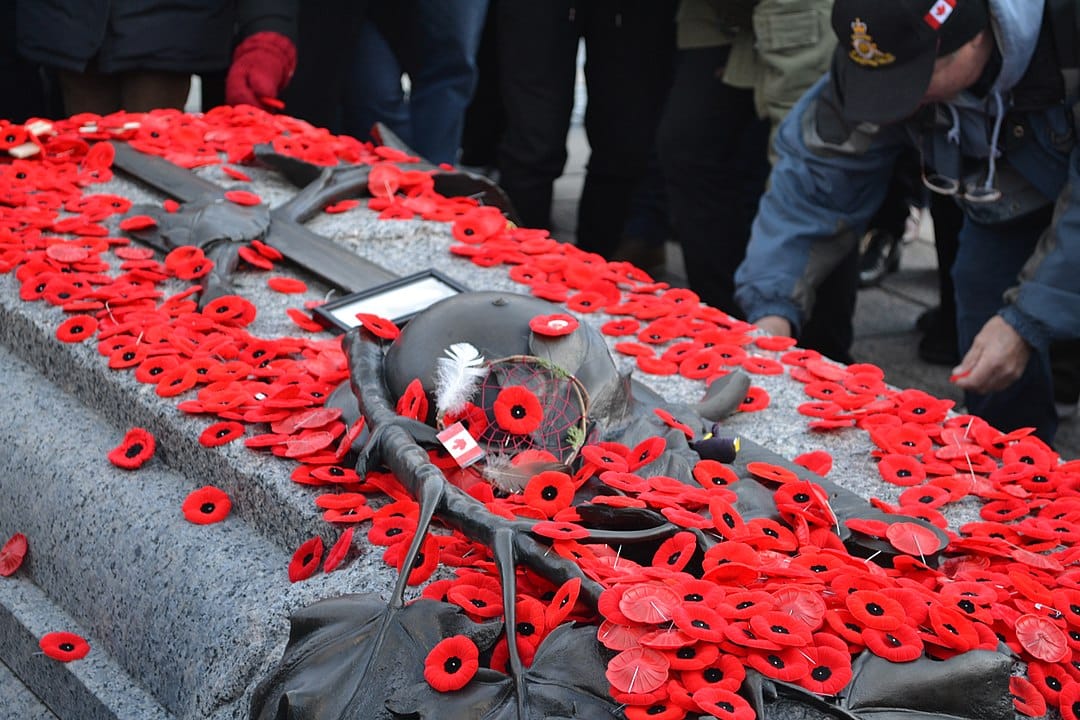
Stephen James
Is the poppy our cultural canary in the mine? Following the atrocities of 7th October, this year’s Royal British Legion Poppy Appeal has been hard to find, troubled with violence, cancelled stalls, and fewer volunteers. More and more, the poppy badge is becoming a rarity. You may have noticed this or even chosen not to wear it this year.
Whatever our political persuasion or social identity these days, none of us can argue that we don’t owe our safety and rights to the service and sacrifice of our Armed Forces. Today is Armistice Day. For 95 years, we have honoured the sacrifice of the veterans, many younger than us, who paid the ultimate price. To remember the fallen, we hold our silence for two minutes — a small token of respect which is a small price to pay against the cost of their sacrifice.
If you think our nation’s observance of Armistice Day and Remembrance Sunday should proceed unhindered, you belong to the silent majority, and I agree with you; however, let’s be silent no longer. Make noise with your actions and attend your local remembrance service. Demonstrate the stoic values that make our country and its people great.
To me, it’s clear that the political leaders of all colours, as well as the Metropolitan Police Commissioner, Sir Mark Rowley, are refusing to show the kind of leadership that even the most junior of servicemen and women have in spades.
The kind of leadership that is essential to maintain order and conserve our way of life.
This year we have seen our Remembrance monuments vandalised and barricaded, fewer community leaders wearing the poppy, some RBL volunteers intimidated, and one physically attacked, ironically ‘in the name of peace’. Our leaders and the leadership of the police have failed to show solidarity with the silent majority, in order to protect the interests of our nation, our culture, and our war dead. I, like many, have had enough of the lack of leadership and implicit cultural shaming of British values.
Policing by consent only works when the law is applied equally and when the police remain above politics themselves. The right to peacefully protest has been weakened by the police service’s failure to prosecute illegal hate speech and antisemitism in these marches. Overlooking these crimes is rightly causing reputational damage, and the Home Secretary, Suella Braverman, is right to voice concerns of cultural bias in the Metropolitan Police; it has happened before. The dangers of ignoring our laws to appease different factions do more damage to our way of life than is possible to measure.
Our nation’s right to honour our war dead is being shamed. However, we can stop this rot by taking pride in the poppy and observing remembrance together this weekend.
These days, we are so used to having our institutions and media bend to the will of so many triggered factions it’s not only tedious but exhausting to keep up with the ‘outrage’. That’s why many of us who don’t want to bore our lives past the point of endurance stay out of it, but we can’t afford to any longer if we want to uphold our values and have any British culture left.
With the decline of the poppy, we are seeing the beginning of cultural collapse in the United Kingdom. If we cannot openly and safely come together to observe remembrance without disruption, what does this mean for us? I don’t want to test that decline. Instead, let’s get behind the values that underpin our British culture and show our solidarity with our Armed Forces as they do for us every day. We can do this by sharing the story of the poppy with our children, supporting the Poppy Appeal, and taking part in one of the remembrance events and services happening this weekend. When so much was asked by so many of so few, this small gesture of remembrance really matters; you could say it signifies the health of our nation. We should protect it and be proud of the small part we can play in bearing witness to the true costs of our British values.